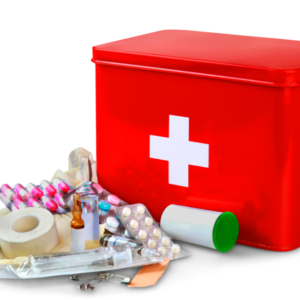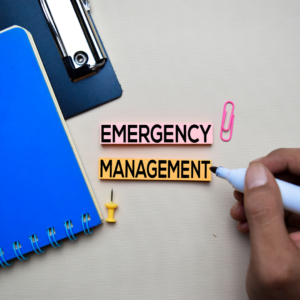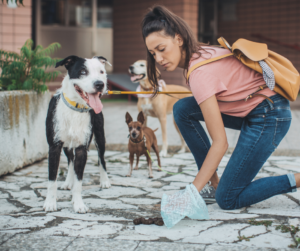Discussing What Items You Should Always Have In Your Pet First-Aid Kit In Honor Of Pet First Aid Month
The month of April is widely celebrated as National Pet First Aid Awareness Month. This month-long pet-themed holiday is dedicated to raising awareness about pet injuries and how to provide emergency care in case of injury. In honor of this amazing holiday, this article will cover all of the essential items that should be in your pet first aid kit.
Keep in mind that we are not veterinary professionals or pet medical professionals. The information presented in this article comes from the A.K.C. (American Kennel Club), A.S.P.C.A. (American Society for the Prevention of Cruelty to Animals), and the American Red Cross.

A first aid kit
The Importance Of First Aid Kits
Emergencies happen. Oftentimes when we least expect them. When emergencies happen, being properly prepared could be the difference between life and death. That’s why it’s so important to keep a fully stocked first aid kit on hand.
However, pets have different needs than people. Therefore, we recommend having a separate first aid kit specifically for your pets. One that caters to the specific needs of your type of pet.
What Items To Keep In A Pet First Aid Kit
In no particular order, here are a few essential items that you should keep in your pet first aid kit.
- Adhesive Tape
- Alcohol Wipes
- Antibiotic Spray/Ointment
- Bandages (non-stick)
- Collar (good to have an extra)
- Cotton Balls
- Digital Thermometer
- Disposable Gloves
- Emergency Blanket
- Epsom Salts
- Flashlight
- Gauze
- Hydrogen Peroxide
- Ice Pack
- Leash (good to have an extra)
- Magnifying glass
- Medicines (prescription pharmaceuticals)
- Milk of Magnesia
- Rubbing Alcohol
- Safety Pins
- Saline Eye Solution
- Scissors
- Soft Muzzle
- Styptic Powder (you can also use corn starch)
- Syringes
- Towels
- Tongue Depressor
- Travel Bowls (for water or food on the go)
- Tweezers

Emergency Management
Contacts & Phone Numbers
Aside from the aforementioned items, it’s also a good idea to keep a list of emergency contacts in your pet first aid kit. This includes the phone numbers & addresses of your veterinarian, local animal hospitals, and/or animal clinics.
Additionally, it’s also a good idea to keep the Pet Poison Helpline number on hand too. The Pet Poison Helpline phone number is 855-764-7661. They are available 24/7 and have experts standing by to give you professional advice on handling any pet poison problem. Full disclosure, there is an $85 consultation fee.
Rotate Your Stock
A well stocked pet first aid kit can be a lifesaver. However, it’s also important to keep your first aid kits up-to-date. We recommend checking your first aid kit every 2 to 3 months to make sure nothing is expired or needs to be replaced. Your first aid kit is only as useful as the resources inside.
Adjust Accordingly
As you probably noticed, the aforementioned list of items is quite long. That being said, feel free to take out, add, or replace items that cater to your pets needs. We recommend keeping the medical supplies, like gauze, bandages, hydrogen peroxide, etc. But, you probably don’t need a leash and collar if you only have a cat. Pack what you feel you may need. But remember, you’d rather have it and not need it, than need it and not have it.
For more information on how to properly administer pet first aid, click here.

A professional pet sitter
Hire A Pet Sitter Today!
Do you or someone you know need a pet sitter? Then look no further than ParaMount Pet Care! We are the leading pet care professionals in the Luzerne County area. All of our sitters are insured, bonded, trained in pet CPR & first aid, and dedicated to caring for your pets.
We offer a wide variety of pet sitting services such as in-home pet sitting, routine dog walking, overnight stays, and more! Click here to see all of our services! Click here to become a client today or give us a call at 570-814-1037. We look forward to hearing from you soon!


0 Comments